A few days ago, I posted five writing activities that I created last month; here are a few more. I find that short activities of this sort are wonderful ways both to get started and to wind down. Finishing a workshop with some sort of activity leaves participants feeling energized, rather than exhausted. Quick ones of this sort are always handy!
Humorous Hyperboles
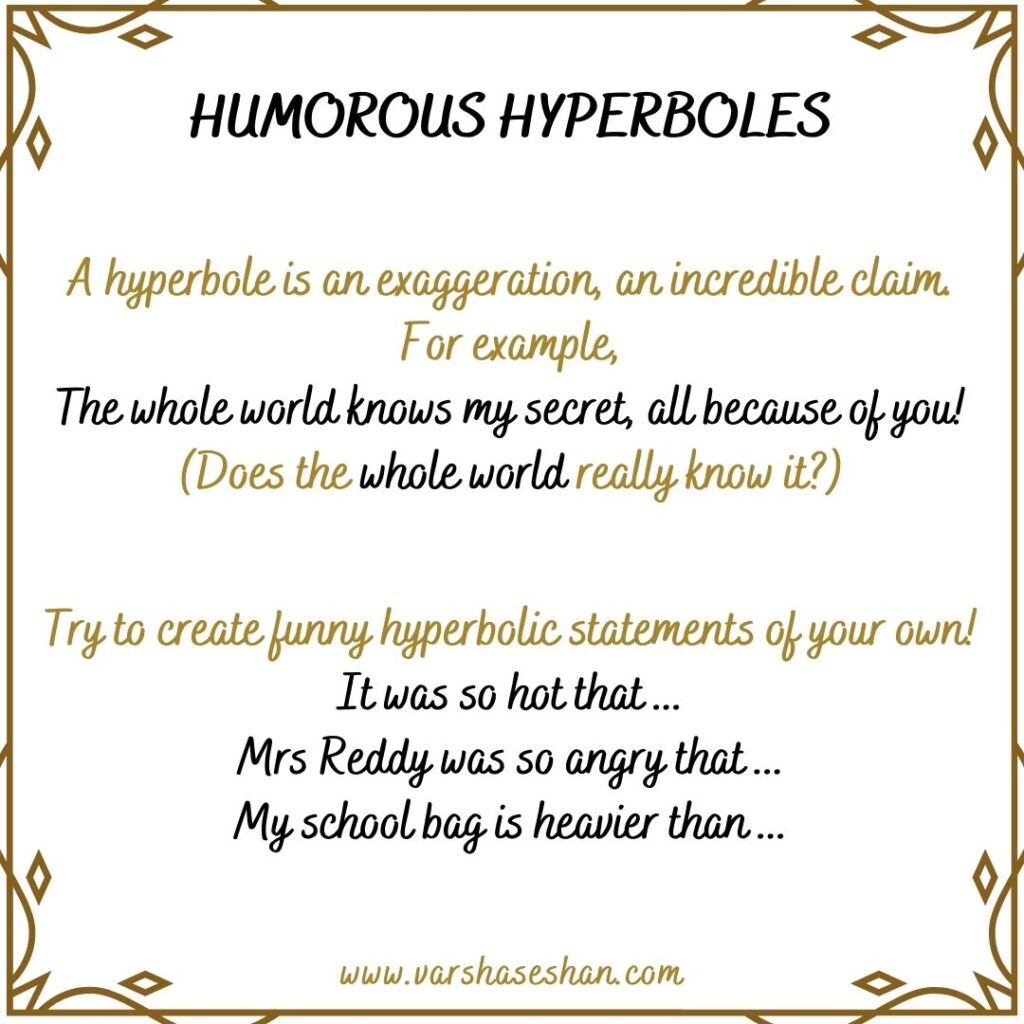
Children are masters of hyperbole. Think about the way they tell stories and how, with each telling, the story becomes grander and more eventful. Adults do it too, even if they pretend otherwise!
So, naturally, working with hyperboles is always hilarious. Here are two more hyperbole ideas that work well:
- How would you describe the most boring class you’ve ever had?
- Who has the loudest voice in your class? How loud is her voice? No, don’t imitate it! Describe it.
Fun with Homophones and Homographs
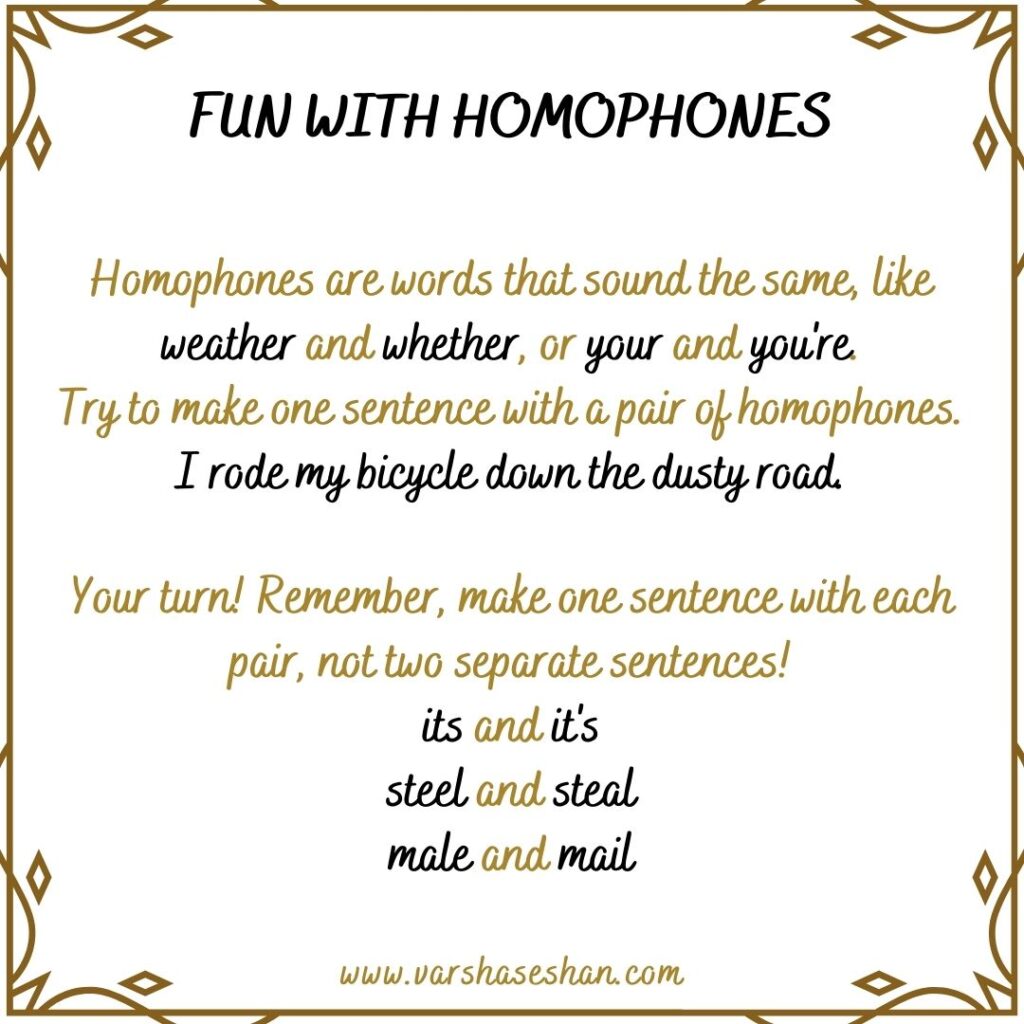
Homophones and homographs go together. I don’t remember ever having studied homographs in school; I read up about them later. Some sources say that homonyms and homographs are the same. Others say that homonyms are homographs that are also homophones. For instance, ‘minute’ and ‘minute’ are homographs, but not homonyms because the words are pronounced differently depending on what we mean.
Before going into class, check that you have your sources handy because even with a light, fun activity, children will ask questions!
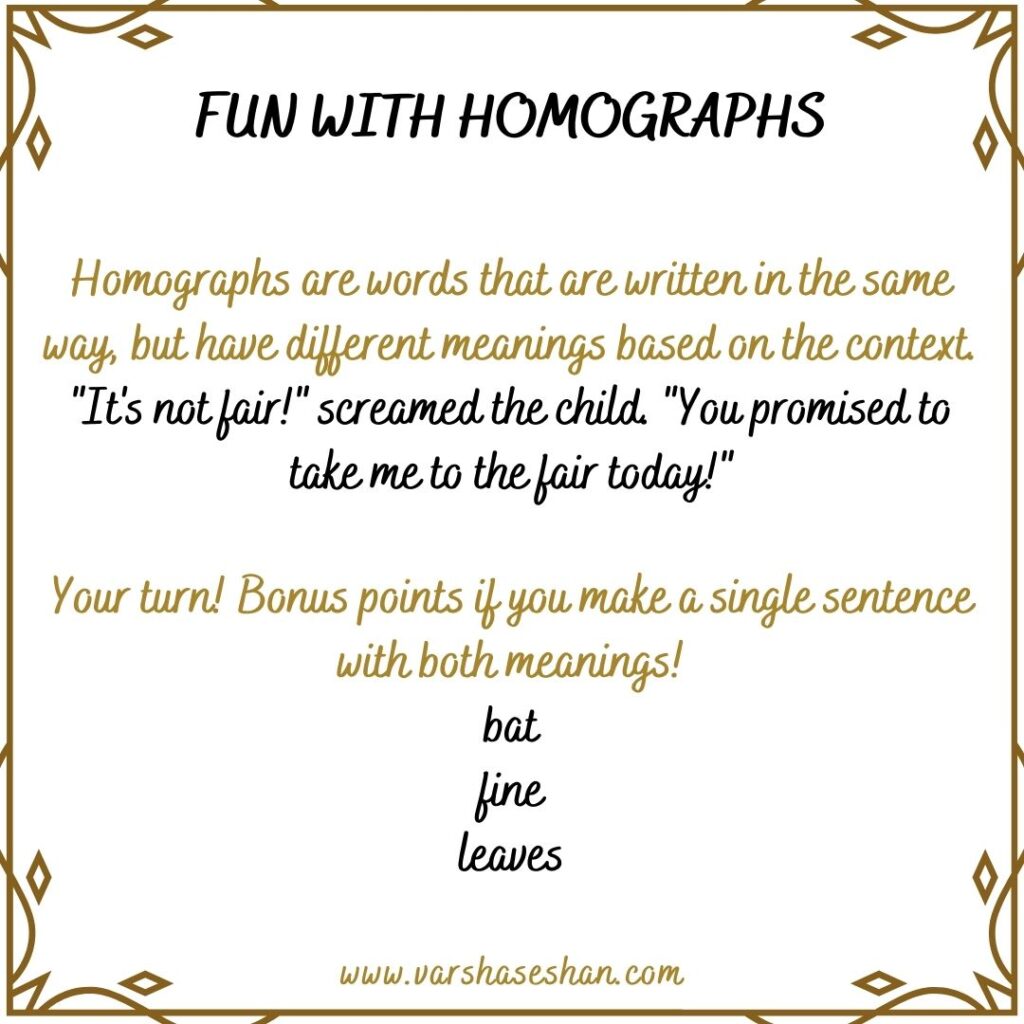
Interesting Interviews
I enjoy setting up a session where workshop participants interview one another, or even me. During creative writing workshops, this also lays the groundwork for character creation because I ask participants to ‘interview’ their characters so that they work on fleshing them out.
Interviews also make for good ice-breakers. During reading workshops, we sometimes begin with children putting together a set of questions about books to ask one another. Often, the questions they come up with are as interesting – if not more interesting – than the answers!
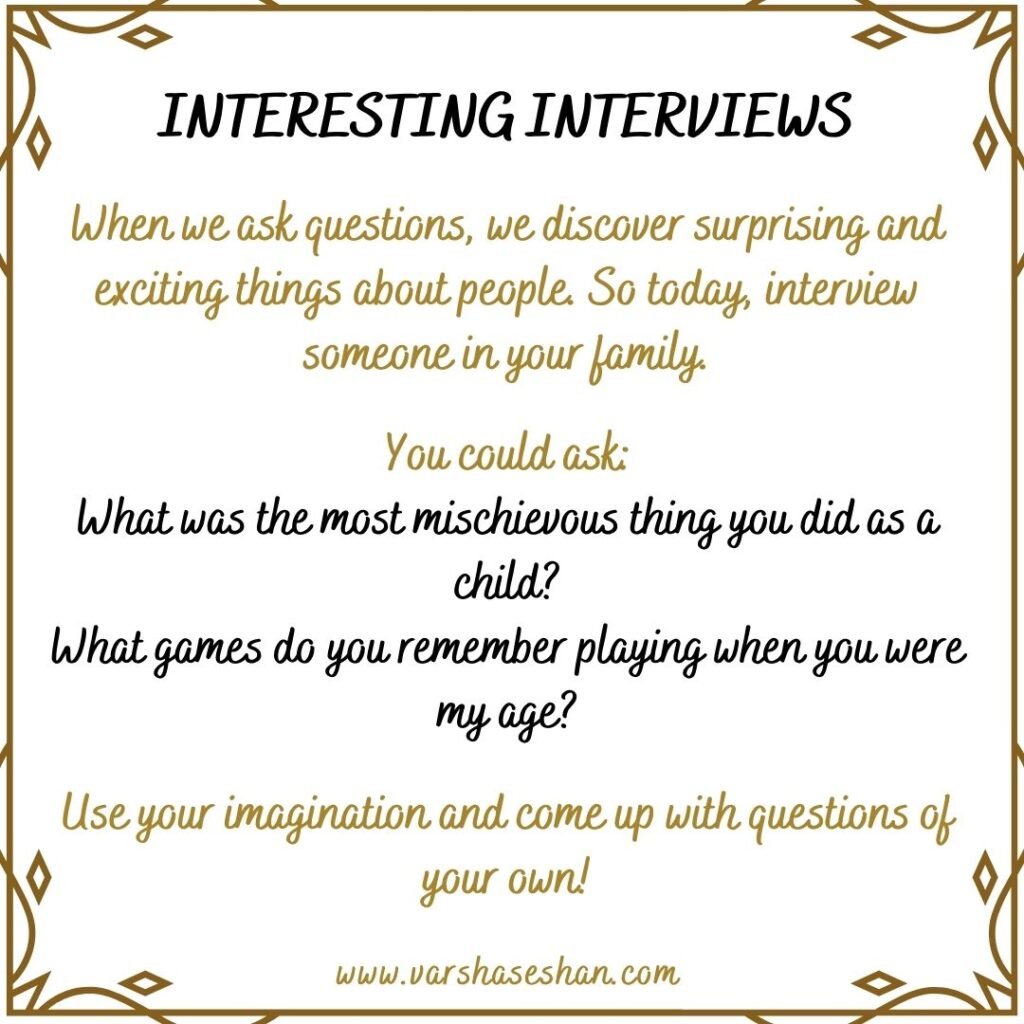
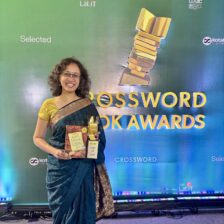
Leave a Reply